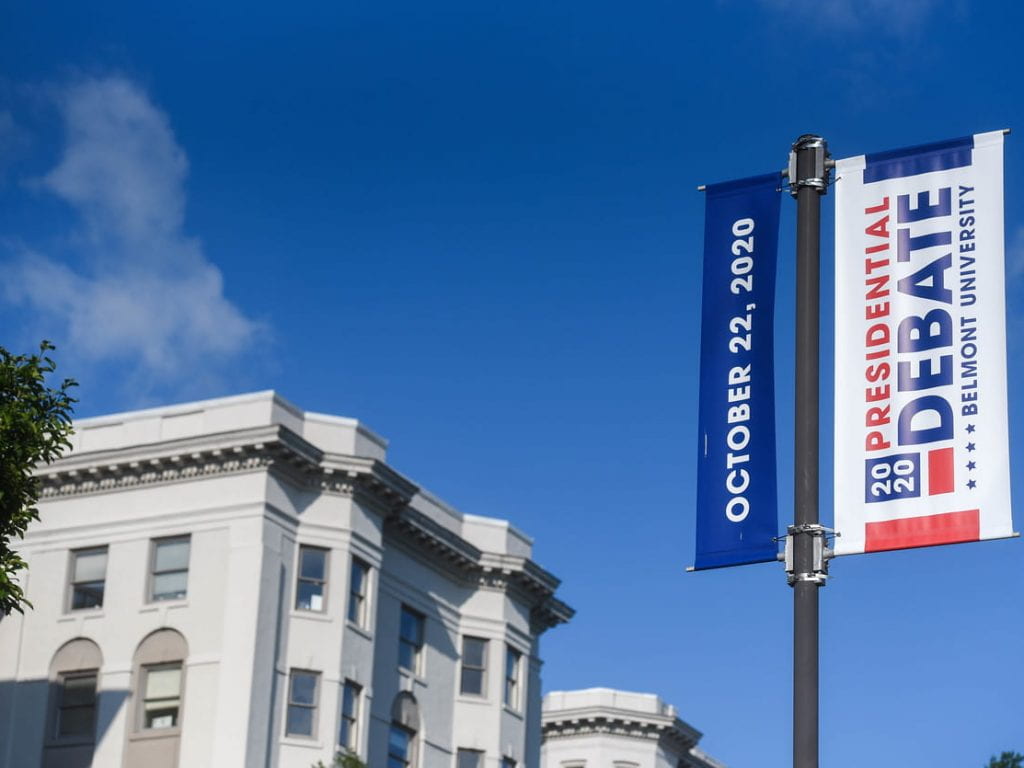By: Natalie Jones
Whether you are attending classes on campus or completing the semester online, you have most likely heard the news that Belmont will be hosting the final Presidential Debate on October 22. The large sign hanging on the bell tower is hard to miss. This is not the first time that Belmont has hosted a Presidential Debate. In 2008, Belmont University hosted a debate between then-Senator Barack Obama and Senator John McCain.
With the unprecedented and unfolding context of covid-19, the upcoming debate will certainly be different. The final of three scheduled debates, Belmont’s event is set to be held only 11 days before the election.
Last week, on September 29th, the first debate was held in Cleveland, Ohio between the two presidential candidates. Many people agreed that the debate was what The Washington Post called “chaotic and nearly unwatchable.”
Public speaking and debate are relevant to many of the classes taught in the Communication Studies Department. We spoke with students about the debate and asked for their opinion on the communication strategies used in Ohio.
Devyn Prater is a junior Communication Studies minor who is currently taking COM 2200 Persuasion. When I asked Devyn what she thought about the previous debate, she told me that there were several points within the debate where she found herself thinking about the concepts she was learning in class. Devyn noticed that neither of the candidates did very well at sticking to a thesis when answering a question. They would both stray away from the question and topic they had been asked about. She also commented on “sustained eye contact” and noticed that Joe Biden did an especially good job of this when looking into the camera and addressing the American citizens.
Tyler Redmon is a Political Science major and a member of the Belmont’s Speech and Debate team. Part of the 2019-2020 Tennessee State Champion debate team, Tyler says he believes the first presidential debate was “anything but [a debate].” Two things that broke the debate rules, according to Tyler, were how the candidates both “commented outside of their allotted time as well as making rude remarks towards one another.” Tyler informed me that this type of behavior is not tolerated in a collegiate-level debate tournament, and the candidates would have been disqualified for their behavior. “From a communications perspective, neither candidate made a truly good faith effort to win over voters on policy,” says Tyler. He believes that if the next two debates continue in this manner, it could do great damage to how voters perceive debates in the future.
Many American citizens agreed with these Belmont students that the debate was not as successful as it should have been. The Commission for Presidential Debates announced after last week’s debate that it will be adding “additional structure” to the remaining debates, including the debate happening on Belmont’s campus.
We know that Belmont has gone to great lengths to host this important event, and we hope it will go forward in a safe and orderly manner. In accordance with this year’s theme, we hope that the event will be contribute to “the marketplace of ideas” and be a valuable educational experience for the Belmont community.
